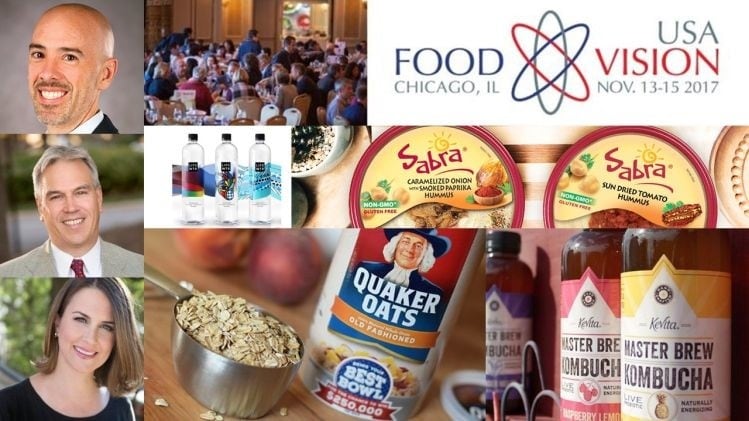While glycerin – which can come from plant or animal sources – is not (yet) on the ‘unacceptable ingredients’ lists of any major US food retailer, and is considered safe by the CSPI – some consumers may be wary of it on a food label, says PepsiCo in a request posted on NineSigma’s open innovation site NineSights (deadline: December 29, 2017).
“The inclusion of glycerin in granola, fruit and nut, and baked bars can result in a negative consumer perception of a product.
“However, removal of glycerin can result in a negative effect on texture, appearance and shelf stability, and effective replacements have not been identified.”
An odorless, slightly sweet, viscous clear liquid, glycerin has multiple applications, and can serve as a humectant (to provide and retain moisture) and a plasticizer (something to help food products retain their structure/shape), explains PepsiCo.
Natural, and label-friendly
So what is PepsiCo looking for from an alternative?
First, it has to be edible, non-toxic and ‘natural,’ says PepsiCo, “meaning that the ingredient has not been subject to processing outside of basic processing steps (e.g. heating, cutting, grinding, pasteurizing, freezing, etc.).”
Second, it must be ‘label friendly,’ “meaning that it does not sound like a long chemical on the ingredient list or is familiar & accepted by consumers…” with “line of sight to regulatory compliance and approval,” and must not provide nutrients to limit [as defined in the Dietary Guidelines for Americans – eg. sodium, saturated fat etc).
Technical requirements
From a technical perspective, it must not react negatively with other ingredients (eg. promote accelerated oxidation, discoloration etc); it must function as a plasticizer in cold-form or baked snack format over an extended shelf-life of up to 12 months; it must lower water activity equivalent to or greater than an equal amount of glycerin; and it should taste “no worse than glycerin.”
Ideally (but these are not essential), it would also provide some nutritional value beyond calories; serve as a replacement for sweet ingredients contributing less added sugar; cost below or similar to glycerin; and allow for Non-GMO, organic and/or gluten free claims.”
“Unless significant advancement has been achieved, PepsiCo is already familiar with the following technologies: Sodium chloride or other low molecular weight salt, and propylene glycol,” says PepsiCo, which says these two approaches are therefore “not of interest.”
Read about more technology needs from PepsiCo on the NineSights open innovation platform.
PepsiCo joins the lineup at FOOD VISION USA
To what extent can big companies behave like smaller, more agile ones? And how are they organizing themselves in order to be more nimble and responsive?
It’s a question that’s top of mind at PepsiCo, says Seth Kaufman, president of North America Nutrition at the CPG giant, who will be speaking at FOOD VISION USA in Chicago next month along with Jeff Zachwieja, senior director, global R&D nutrition sciences, and Becca Kerr, VP and general manager, Tropicana North America.

